calsfoundation@cals.org
William Frazier House
aka: Frog Level
Originally called the Frazier Plantation House, the William Frazier House near Magnolia (Columbia County) was constructed in 1852 by William Frazier. According to some, the frivolous name of “Frog Level” was suggested by B. F. Askew, a young attorney in the area, because of the noise created by the numerous frogs in the river bottoms near the house. Others suggest that the plantation house may have stood at the center of a settlement named Frog Level, much like similar settlements in North Carolina and other southeastern states, and that as the settlement declined due to the growth of Magnolia, the name was transferred to the one house. The Frazier House, or Frog Level, is one of the few remaining antebellum plantation homes in southwestern Arkansas. It was added to the National Register of Historic Places on September 22, 1972.
The two-story structure has a center hall and two rooms on each floor. Large chimneys are located at either end, and there is a two-story temple portico in the front. The main entrance on the first floor has double doors with simple rectangular sidelights and transom. A matching door on the second floor opens into a gallery. The house is crowned with a simple gable roof, and its exterior is covered with clapboard. The four main rooms of the house all measure twenty-two square feet. The fireplace mantels are hand carved in simple designs, while the floors are heart of pine, six inches wide and half an inch thick.
The Frazier estate illustrates the devastating effect of the Civil War on property values in the South. In 1866, the Frazier property, then consisting of Frog Level and some 1,046 surrounding acres, was valued at $1,156, barely one-tenth of the total valuation of $11,275 in 1861 (a figure that then included the value of approximately sixteen slaves). Frog Level is a short distance—only a few hundred feet—from the Ferguson and Morgan store, where the first term of the Columbia County Court was held on March 21, 1853. Following the Civil War, a government-controlled brewery was operated at Frog Level.
Following restoration, the original hand-blown glass for the sidelights and transom was put back in place. Several of the doors of Frog Level still have their original hand-wrought locks, and the original wooden dado extends up the stairway and around each of the four main rooms. An original chimney of the house fell during a windstorm in 2007 but has been rebuilt. The house has always been privately owned, first by the Frazier family and then by the Woodward family beginning in 1942.
For additional information:
“Frog Level.” National Register of Historic Places nomination form. On file at Arkansas Historic Preservation Program, Little Rock, Arkansas. Online at http://www.arkansaspreservation.com/National-Register-Listings/PDF/CO0386.nr.pdf (accessed August 22, 2022).
Woodward, Mary Davis. “‘Frog Level,’ Oldest House in Columbia County.” Arkansas Historical Quarterly 8 (Winter 1949): 327–330.
Bill Norman
Little Rock, Arkansas
Staff of the CALS Encyclopedia of Arkansas
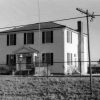
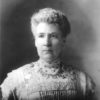
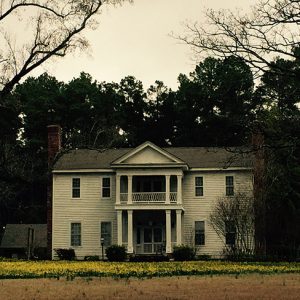
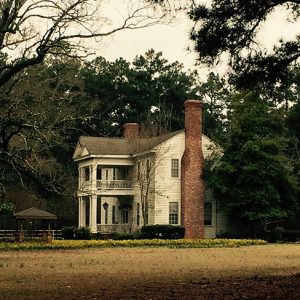
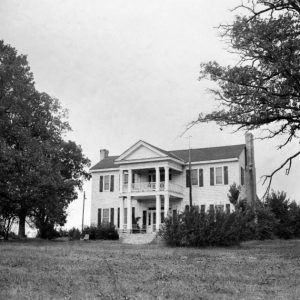




We drove by Froggy Level and were amazed at how great it looks. My grandfather was Dale Joel Frazier, and his dad built Froggy Level. We toured the house many years ago and would someday like to see it again. Love history!
It is the last building standing in the original community of Frog Level. The community was named Frog Level because when Columbia County was formed, they had to name a county seat. Frog Level was the first county seat of Columbia County, while they bought land and plotted out the town of Magnolia.
We own the home. I have done my research. I love history, and I know the source behind it being called Frog Level–dates back to the c. 1840s.
My great-great-grandfather was William Augustus Frazier, who built the plantation. His youngest son, Lee Frazier, was my great-grandfather. His son James Napoleon Frazier was my grandfather. We lived near the plantation in 1950. And we have many stories from long ago. History is important.